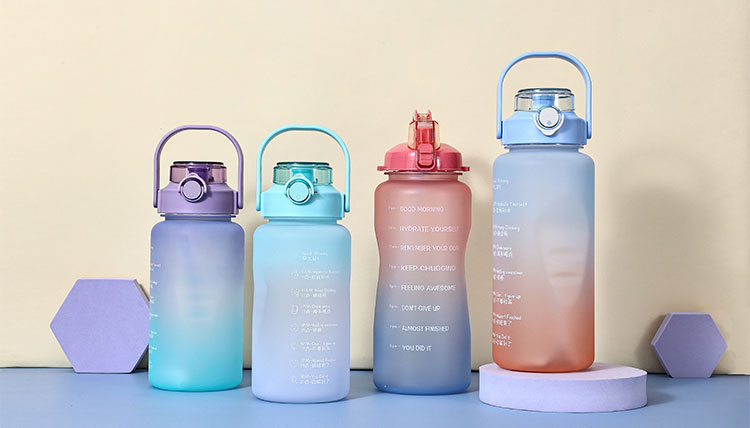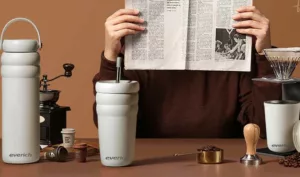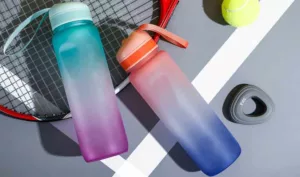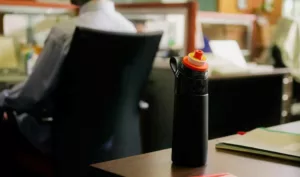Today, a plastic water bottle has various functions, colors, and styles. With features of easy-to-carry and resistance to falling, it has become a popular water container among modern people. It is a common tool for people to go out for sports, travel, and other activities, and is also used to give children to drink water. Now, you’ll find that everyone carries a water bottle all most time. Whether in their room, going to the gym, at work, or anywhere, they can carry water bottles around themselves. Thus, wholesale plastic water bottles are such a business in the water bottle market.
Considering health issues, most people prefer to invest in BPA-Free water bottles. As a professional water bottle supplier in China, Everich Hydro provides a wide selection of BPA-Free water bottle wholesale services, with over 20 years of manufacturing experience. Every plastic material has its own advantages and disadvantages. This article will give a detailed introduction to the popular plastic materials used in our factory. You can take a reference to know which material option is best for your custom plastic water bottle business.
What are Tritan water bottles?
Due to people’s pursuit of quality life and health, the market has increasingly environmentally friendly demands for plastic raw materials. For example, PC hydrolysis will produce BPA (Bisphenol-A). Modern medical research has concluded that BPA more than a certain dose may affect human health (including animals), so some countries and regions have restricted or banned PC. The Ministry of Health and other departments issued an announcement that BPA banned baby bottles on September 1, 2011. In response to the environmental pressures, many manufacturers are looking for an alternative to PC. It is in this market context that Eastman has developed a new generation of co-polyester, Tritan.
Today, Tritan is the safest and most healthy plastic material. It is the designated material for baby bottles in Europe and the United States. Meanwhile, it is the most used material of plastic bottles in our export. The price of Tritan material fluctuated greatly in 2021, but it has fallen now. There are no other disadvantages except the high price.
Material Characteristics
BPA-free: Tritan could pass FDA/LFGB detection. Instead of PC material, it is the safest plastic material.
Strong heat resistance: greatest temperature 120℃.
Transparent, strong permeability, light transmission rate > 90%, crystal-like luster.
Strong impact resistance, durable, good chemical resistance.
Good Formability can be injection molding, blow molding, and other methods of processing.
Applications
Tritan material is widely used in various space cups, sports bottles, children’s cups, coffee tumblers, transparent accessories, etc.
SK Water Bottles
Both Tritan and SK are made of high-temperature-resistant plastic and are relatively safe. Its performance is close to Tritan’s, and its price is lower than Tritan’s. It is often used in low-end temperature-resistant plastic water bottles. It is often used in low-end temperature-resistant plastic bottles or supermarket promotion orders. The highest standard SK material can also pass the FDA/LFGB test, with a temperature resistance of 100°C.
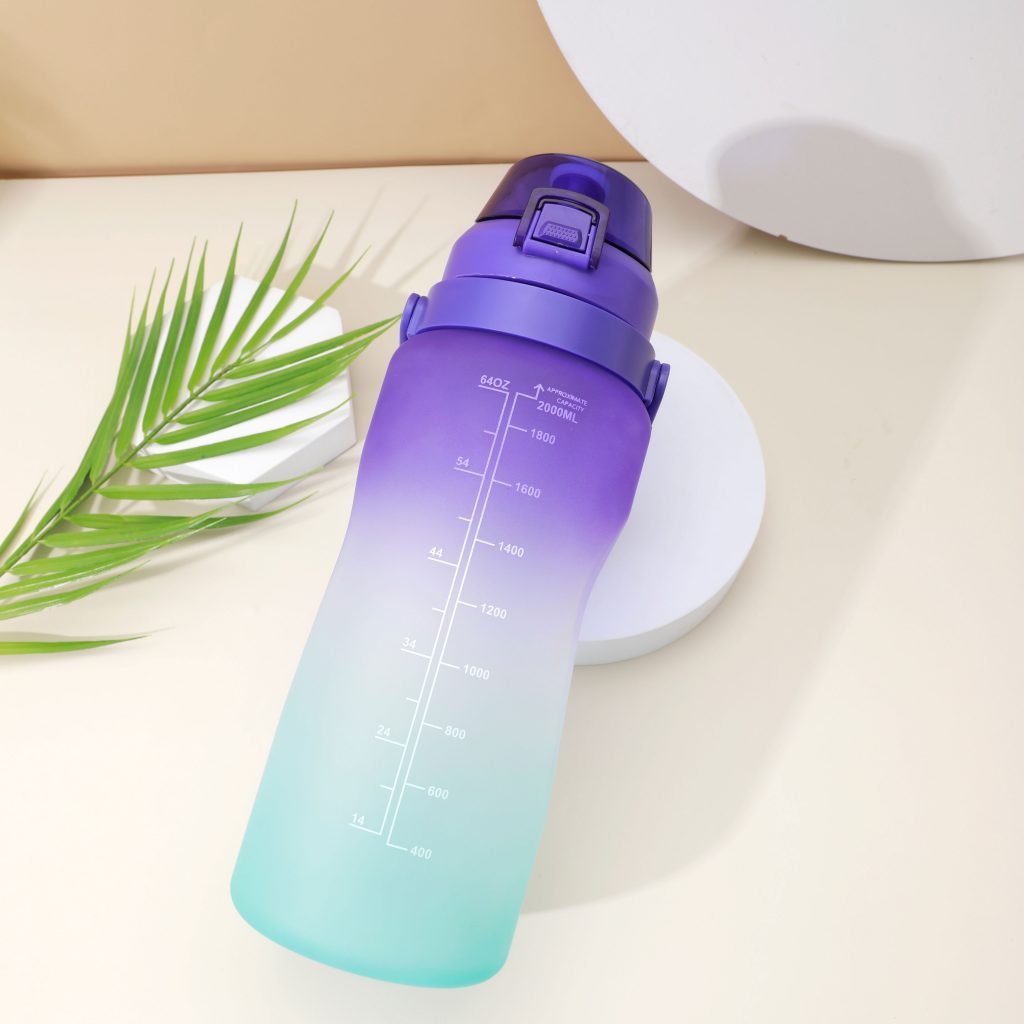
Is PETG Safe for Water Bottles?
Besides the high-temperature resistant material – Tritan, Eastman also has a low-temperature material – PETG.
PETG has the same permeability as Tritan and can test for food grade. PETG is often used for cold water sports bottles, which are relatively thin at about 0.5mm due to the extrusion and blowing process. Conventional plastic bottle thickness of about 1.2-1.5mm), so it is not very resistant to fall. PETG is commonly used in sports bottles for cold water and has a heat distortion temperature of 65-70°C.
What is a PP Water Bottle?
Pros
Solid color or translucent shape, limited permeability. The original color is semi-transparent matte.
High impact resistance, moderate toughness, PP water bottle can pass through the dishwasher.
Heat-resistant 100 ℃, microwave oven heating is available.
PP is food-grade plastic material and does not contain BPA, safe and non-toxic.
Cons
Widely used in various fields, it is the main source of white pollution and is restricted in some countries where plastic is banned.
Poor permeability, it will have a hazy matte feeling.
Low surface hardness, easy to scratch and absorb oil.
Applications
Mugs, lunch boxes, various injection parts, lids, etc.
AS Materials
Material characteristics
Excellent translucency, blue base color.
Brittle and fragile, poor impact resistance, easy to scratch.
80℃ temperature resistance, AS material, can not withstand too high temperature.
Applications
AS material is often used for single/double straw cups, coffee cups, cold drink cups, lids, tea compartment accessories, etc.
ABS Materials
ABS plastic is opaque and ivory-colored granules, and its products can be colorful by adding color powder or masterbatch, so on have a high gloss. With a good combination of ABS and other materials, it is easy to surface printing, coating, and plating treatment.
Material characteristics
High strength, good toughness, easy processing, and molding.
Excellent mechanical properties, its impact strength is excellent and can use at very low temperatures.
Excellent wear resistance, good dimensional stability, and oil resistance.
Poor weather resistance and it is easily degraded under the action of ultraviolet light; the impact strength drops by half after six months outdoors.
The heat deflection temperature of ABS is 93~118℃, and it can use in the temperature range of -40~100℃.
Applications
The largest application areas are automotive, electronic appliances, construction materials, and DIY production; We mainly use it for plastic parts, coffee pot shells, etc.
Where to buy BPA-Free Water Bottles?
Everich And Tomic Housewares Co., Ltd. is facing the world to undertake stainless steel water bottle and BPA-free water bottle, OEM and ODM order available passed ISO certification, BSCI certification. Everich Hydro is a versatile water bottle brand that offers a variety of sizes, shapes, and colors. We can provide customers with a full set of water bottle orders, from product design to structural design, and mold development. They are 100% BPA-free, 100% food-safe grade, compliant with European and American food-safe standards, and passed third-party tests such as FDA, LFGB, and EC1935-24. If you want to invest in the BPA-Free water bottle business, send us an inquiry today!
